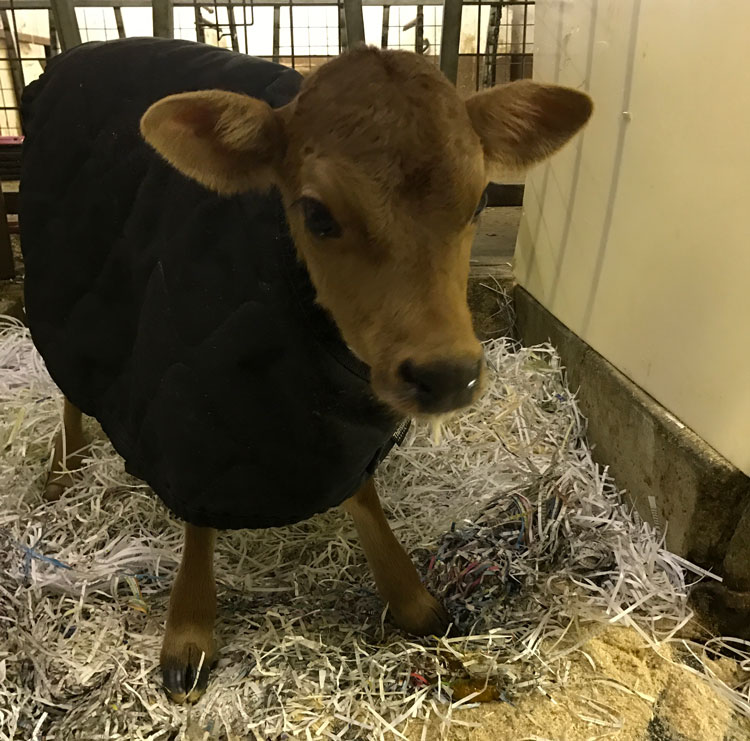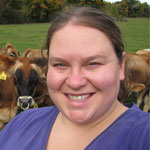
There are about a gajillion different products on the market for raising calves. They claim to keep your calves healthier, grow them bigger and stronger, and make them more productive two-year-olds when they eventually enter the milking herd. I feel like we’ve tried them all. We’ve bought the antibody gels, the charcoal powder, the probiotics, and the colostrum enhancers. We’ve experimented with differently balanced milk replacers, tried just about every calf starter available to us, and have bought any and every new product salesmen have sold us over the years. And do you know what I’ve learned? While some of the products seemed to help for a while, honestly, it has always come down to going back to the basics.
If you’re a dairy farmer, you know what I mean. Feeding them a good amount of clean, quality colostrum as soon as possible is key. I’ll note here that colostrum management is a big deal; we have a milk can that is only ever used for colostrum and is kept clean, sanitized, and separate until it’s needed. Then, of course, there’s whatever vaccines you choose to provide to the cow and calf. We’re pretty minimalist here. The only vaccine we give our calves is a nasal vaccine for respiratory issues. Then, they need a clean, warm, properly ventilated environment to live in.
Yikes, that paragraph is a major simplification of what can be one of the most frustrating jobs on the farm. As one of our main calf feeders, I know. But above all of that, do you know what I think is the number one thing every good calf program has? Consistency. Specifically, consistency in who feeds, handles, and treats your calves. I totally understand if that’s not in the cards for you right now. Finding the right employees is tough. But I also think it’s something worth working toward. We currently have two main calf feeders, and they’re the right people for the job. They communicate well, have discussed and implemented protocols that work, and they pay attention. It’s not uncommon for us to catch a calf scouring before she’s even truly shown physical symptoms of scouring, all because of a text or note that said “Cosmic looks a little off.”
Consistency is helpful in the parlor, too. Last weekend, I caught two mastitis cows that weren’t showing outward signs of sickness and three cows in heat an hour before they showed heats simply because I know my cows. I know that in bigger herds you often rely more on the numbers and systems in place to catch those kinds of things, but I still think it’s worth having someone around the cows who just knows and likes cows.
I’ve been made fun of for calling my cows “ladies” or talking to them like they’re going to talk back. And honestly, I’m not ashamed to admit that I have at least as many cow photos on my phone as I do photos of my niece and nephews. But isn’t that the exact person you want taking care of your cows? That’s the person you trust to treat them with the care and respect they deserve.

The author dairies in partnership with her parents and brother at Spruce Row Farm in Pennsylvania. Jessica is a graduate of Pennsylvania State University, and since 2015, she has been active in promoting dairy in her local community. You can find her and her 250 Jersey cows on Facebook at Spruce Row Dairy or on Instagram at @seejessfarm.